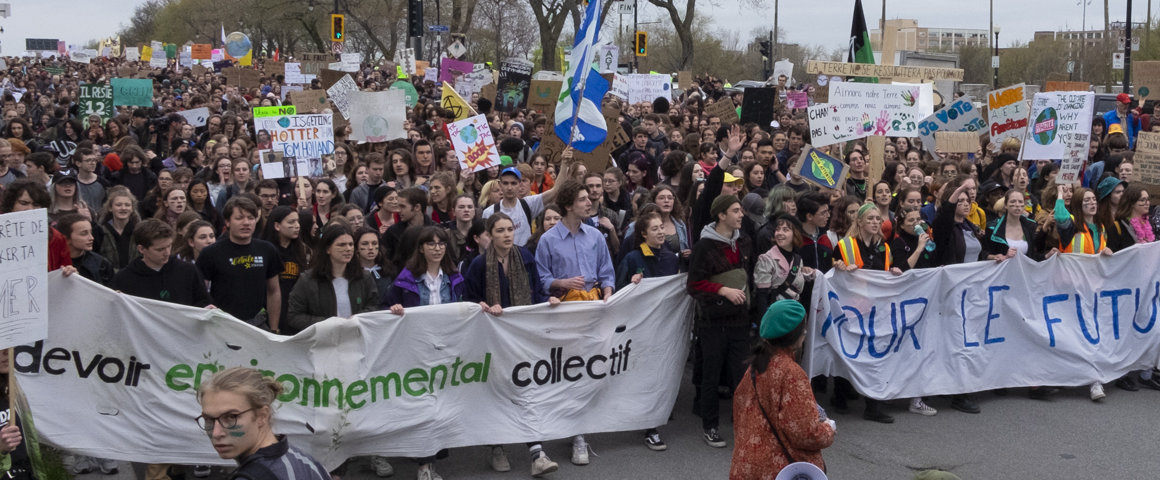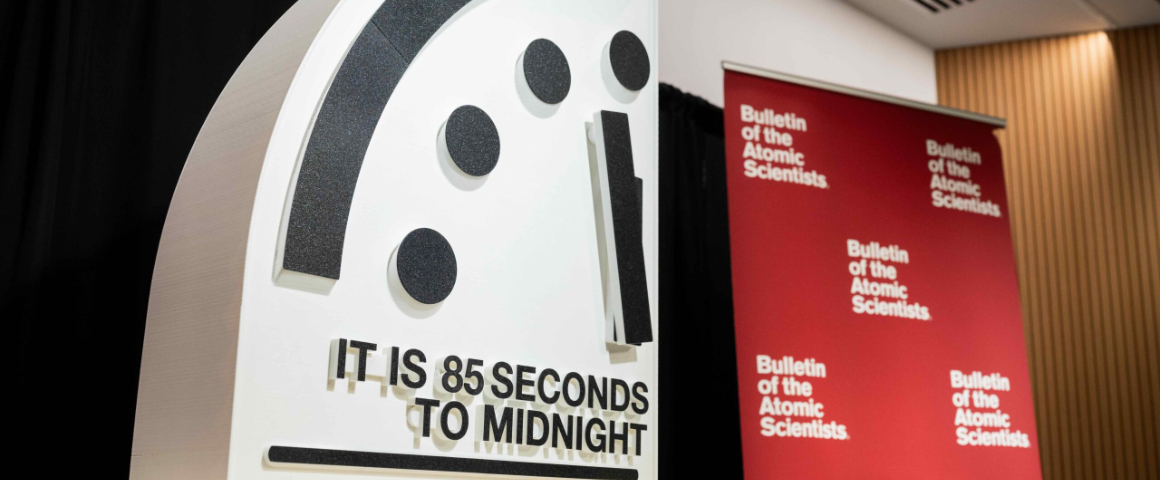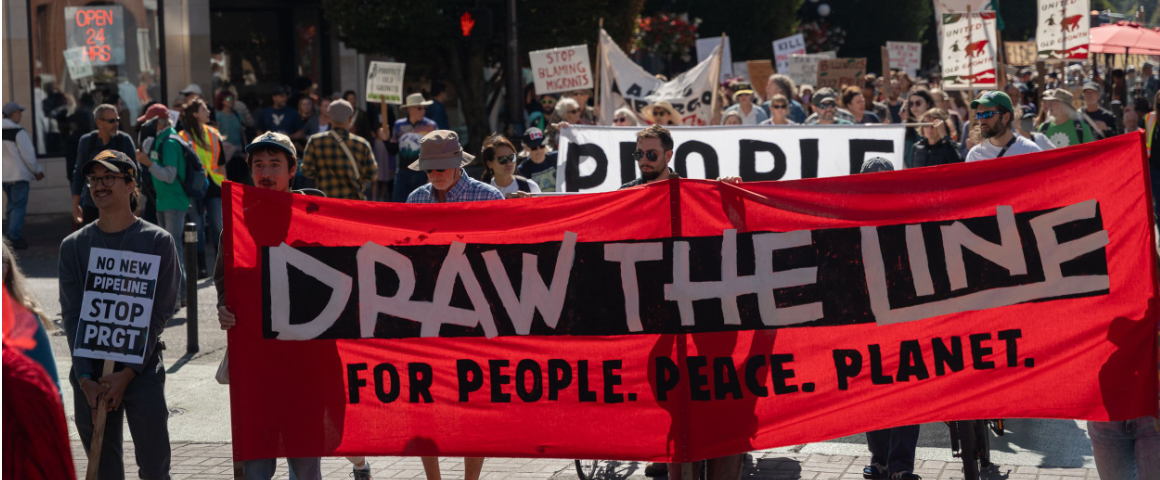On November 16, François Legault’s Coalition avenir Québec (CAQ) government presented its “Plan for a Green Economy 2030” to the people of Quebec. It’s considered long overdue by the environmental movement, the trade unions and everyone who fears the climate apocalypse, as well as by Legault’s allies in the ruling class, who advocate the economic model that has led us to the precipice we face today.
The plan’s content will not surprise anyone. The focus is on electrification of transport and heating with a ton of money for the private sector, subsidies for research into “renewable” natural gas and other “innovative” sectors, while targeting greenhouse gas (GHG) reductions to 37.5 percent below 1990 levels by 2030. Funding for the first 5 years of the plan is not even the same amount of money set aside to pay down government debt. Furthermore, a significant amount will be paid directly to the private sector, which amounts to paying those who are largely responsible for the crisis, instead of making them pay.
As soon as the plan was tabled, unions and environmental groups pointed out that the CAQ approach does little to motivate change, especially as it focuses on the carrot but neglects the stick. “While we have spent nearly 30 years raising awareness, educating and mobilizing for a greener world, this [plan] is insufficient to meet the challenge that is before us,” lamented Sonia Ethier, president of the Centrale des syndicats du Québec (CSQ). Indeed, the absence of penalties or other coercive tools illuminates the government’s lack of firmness and seriousness.
“The climate catastrophe will not be resolved through small reforms and small victories, but through a broad, inclusive and ambitious plan worthy of the current challenge,” said Yixin Cao of the Coalition étudiante pour un virage environnemental et social (CEVES). Youth, who are at the heart of the debate, are particularly losing patience. It was through this anger and impatience that Greta Thunberg captured the media spotlight, echoing sentiments so prevalent among her generation.
According to the Fédération des travailleurs et travailleuses du Québec (FTQ), “achieving the goal of carbon neutrality in 2050 will be difficult without binding measures and a structured short-term work plan.” By its very nature, bourgeois parliamentarism will never lead to a fundamental change of course, even where its failed policies jeopardize the future of humanity. Ultimately, the Legault government will only stick with this until the end of its mandate. The ruling class has always been incapable of responding adequately to the climate and environmental crisis because they show no interest in change as long as their profits and their power are safe until the next quarter or the next election.
Notably, the plan allocates just $19 million over 5 years to Indigenous communities to support climate transition projects, a fact that has received little reaction from broader movements and unions. In addition to the money, the plan says the government will offer the benefit of “support” – there’s no hiding the paternalism here. Climate colonialism is in full swing and the crumbs thrown at Indigenous communities, often among the most at-risk from climate change, testify to the CAQ’s contempt for First Nations and Inuit.
According to the Association québécoise de lutte contre la pollution atmosphérique (AQLPA), hidden within CAQ’s commitment to reduce GHG emissions in Quebec by 29 million tonnes is the plan to buy carbon credits in California. The ultimate objective, then, is to only reduce emissions in Quebec by 12 million tonnes (42 percent of the total planned) and to use taxpayers’ money to buy “permits” for the remaining 17 million tonnes. Such schemes, which do not create any jobs in Quebec or anywhere, have been rejected by the majority of the environmental movement as another “false solution.”
The progressive, Indigenous, environmental, socialist and popular movements are fed up with the inaction of the ruling class, evidenced by the anger of 500,000 people in the streets of Montreal in September 2019. The Parti communiste du Québec (PCQ) has proposals that do not back down from the urgency of the situation. The current economic crisis – linked to COVID and rooted in capitalism – is connected with the climate crisis, and forces us to respond with a plan that prioritizes the needs of the people for a life of dignity and a healthy planet for the future of humanity.
Whether it is deep reduction of the Canadian military budget, closure of tar sands, the increase in taxes on corporations and the very rich, job creation, massive construction of social housing or expanding public transportation, the Communist Party’s Program for a People’s Recovery is a comprehensive plan for the reforms working people need now. Winning them will take a popular struggle to overturn the status quo of neoliberalism, austerity and market nihilism advocated by the ruling class.
Nothing less is necessary for the survival of our planet!
[Photo: CEVES]
[hr gap=”10″]
Get People’s Voice delivered to your door or inbox!
If you found this article useful, please consider subscribing to People’s Voice.
We are 100% reader-supported, with no corporate or government funding.




